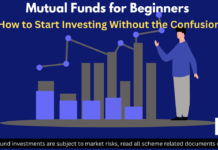India’s startup ecosystem and alternative investment space are undergoing a massive transformation. At the heart of this shift lies the SEBI Accredited Investor framework, first introduced in July 2021 and fully enforced by August 2025. This regulatory milestone is designed to give high-net-worth individuals (HNIs), family offices, and institutions access to exclusive, high-growth investment opportunities.
This guide breaks down everything you need to know about becoming a SEBI Accredited Investor—what it means, how to qualify, the application process, and the benefits it unlocks.
What is a SEBI Accredited Investor?
A SEBI Accredited Investor (AI) is an individual, trust, or institution recognized by SEBI as having the financial strength, experience, and risk appetite to participate in advanced investment opportunities.
Accredited Investors get access to:
- Early-stage startups via angel funds
- Alternative Investment Funds (AIFs) under relaxed regulations
- Exclusive investment products designed for sophisticated investors
In simple terms, this certification acts as a passport to high-potential, high-return opportunities usually out of reach for retail investors.
Regulatory Timeline: Key Milestones
- July 2021 – SEBI introduces the Accredited Investor concept with basic eligibility criteria.
- June 2025 – Accreditation becomes mandatory for angel fund investors and certain AIFs, with a one-year compliance transition.
- August 2025 – Full enforcement begins:
- Mandatory accreditation for angel funds.
- Special privileges for Accredited Investors in startup schemes and AIFs.
Who Qualifies as a SEBI Accredited Investor? (2025 Criteria)
Individuals
Must meet one of the following:
- Annual Income: ₹2 crore or more (for the last 3 years)
- Net Worth: ₹7.5 crore or more, with at least ₹3.75 crore in financial assets
- Hybrid Criteria: Annual income of ₹1 crore + Net worth of ₹5 crore (with at least ₹2.5 crore in financial assets)
Non-Individual Entities (Trusts, Companies, etc.)
- Net Worth: Minimum ₹50 crore
💡 Note: Self-declarations are no longer accepted. Verification must be done through SEBI-recognized agencies.
Why Become a SEBI Accredited Investor?
The Accredited Investor status unlocks four big advantages:
Exclusive Investment Access
- Priority access to restricted angel funds, AIFs, and startup opportunities.
- Ability to invest in innovative financial products unavailable to retail investors.
Relaxed Regulations
- Light-touch compliance and reporting.
- Higher investment caps per startup (₹10 lakh – ₹25 crore).
- Simplified fund structures aligned with global best practices.
Customized Products
- Access to complex, high-yield financial instruments created exclusively for AIs.
Global Alignment
- Brings India in line with the US, EU, and Singapore, where accredited investors are the backbone of alternative investment markets.
Step-by-Step Accreditation Process
Step 1: Check Eligibility
Confirm your income/net worth matches SEBI’s thresholds.
Step 2: Prepare Documents
- Identity proof (PAN, Aadhaar, Passport)
- ITRs (last 3 years)
- Net worth certificate (CA-certified)
- Financial statements (as required)
Step 3: Apply via SEBI-Authorized Agency
- CDSL Ventures (CVL)
- NSDL Database Management
- BSE Administration & Supervision
Step 4: Verification & Certification
- Agency verifies documentation
- SEBI “fit and proper” check
- Digital certificate issued in 3–5 working days (valid for 2–3 years)
Step 5: Use Accredited Status
Show your certificate while investing in accredited-only opportunities.
Step 6: Renewal
Update financials and reapply before expiry.
Benefits for India’s Investment Ecosystem
- Boosts Startup Funding – Sophisticated capital flows to innovative ventures.
- Protects Retail Investors – Restricts risky investments to financially capable participants.
- Enhances Transparency – Accreditation links money flow with compliance.
- Aligns with Global Practices – Makes Indian startups more attractive to international co-investors.
Challenges & Criticisms
- Exclusivity – High thresholds risk creating an elite-only investor class.
- Compliance Burden – Documentation requires professional help.
- Transition Shock – Some existing angel investors may drop out if they don’t qualify.
Final Thoughts
The SEBI Accredited Investor framework (2025) has officially redefined how India’s startup and alternative investment markets operate. While the barriers are high, the rewards are substantial—access to exclusive deals, lighter compliance, and higher growth opportunities.
For HNIs, family offices, and institutions, becoming an Accredited Investor is no longer optional—it’s essential to stay competitive in India’s new investment era.






